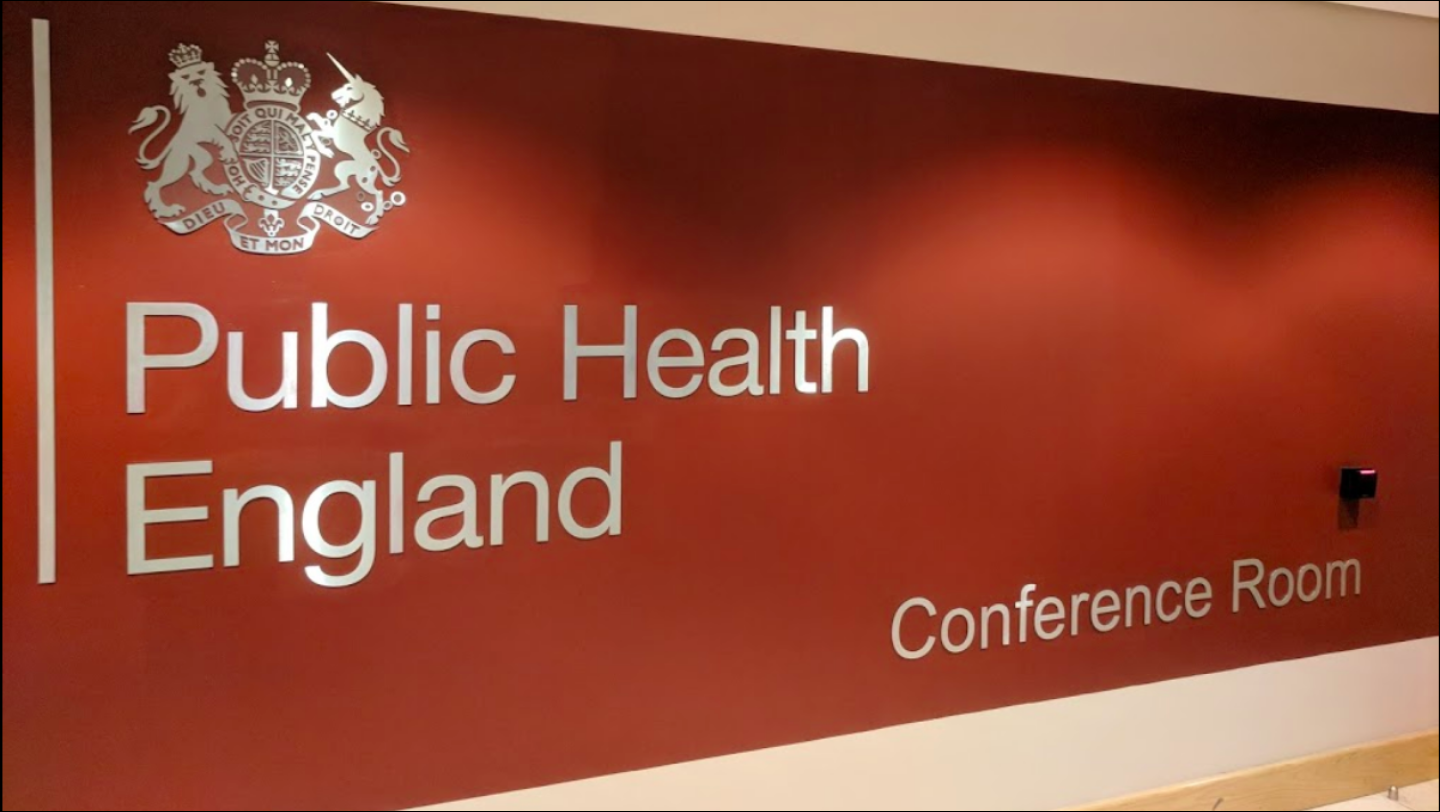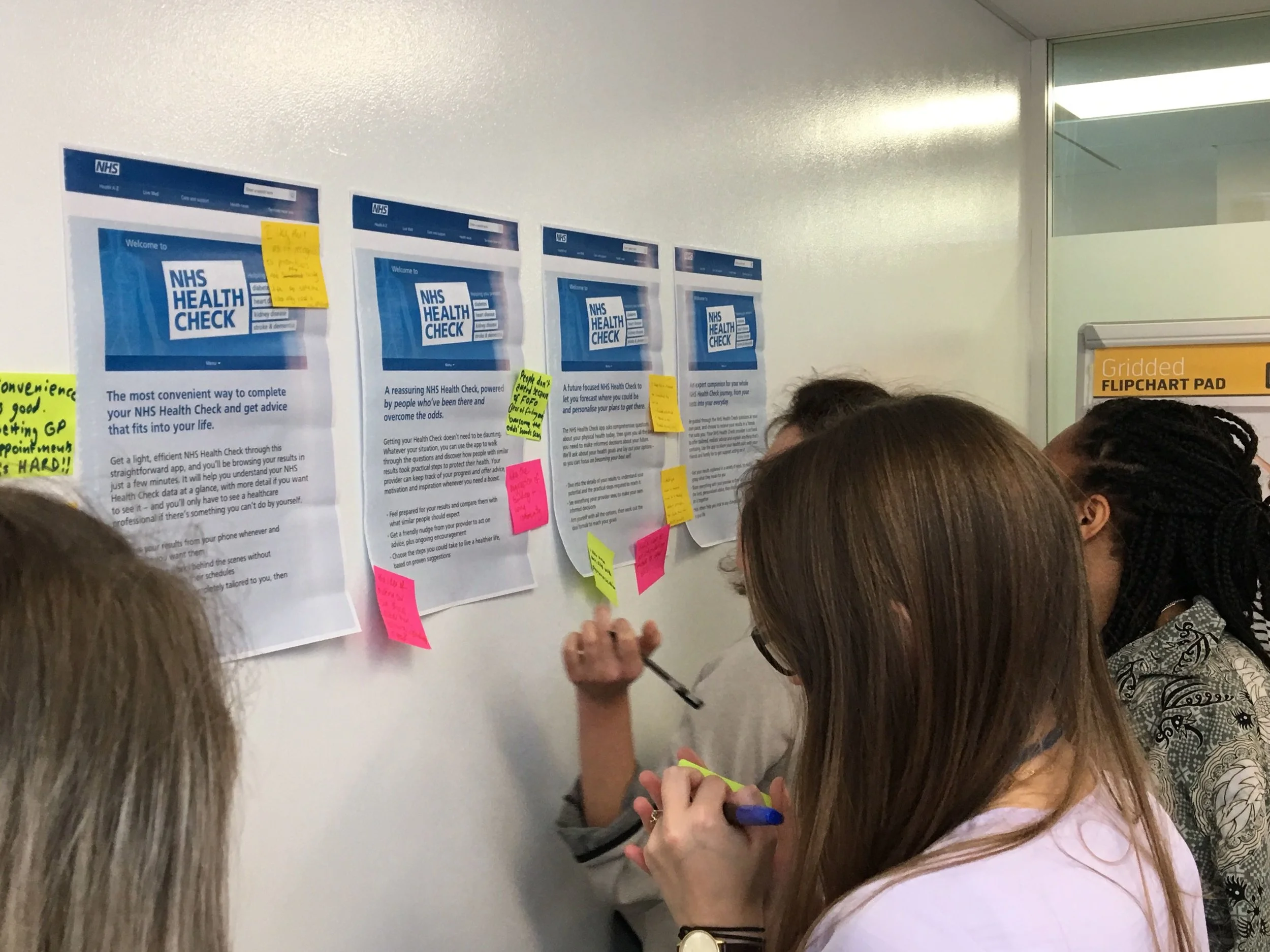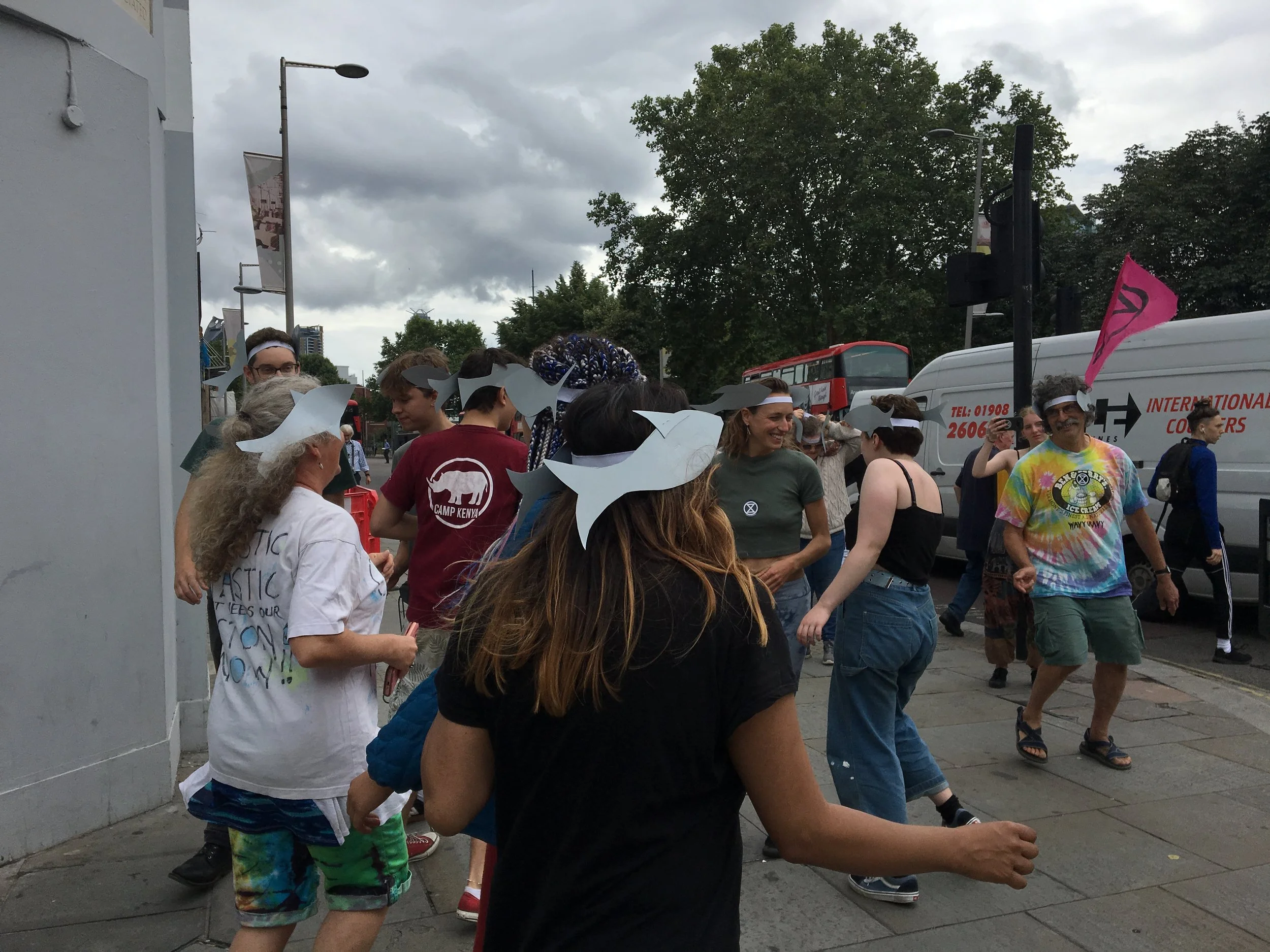#68 The In-House Designer
I first met Kate Burn when she taught my students as part of their Digital Experience Design MA. Kate is now a Lead Service Designer at Public Health England. PHE is the executive agency of the Department of Health and Social Care, and exists to protect and improve the nation's health, and reduce health inequalities. To read more about how PHE fits into how the UK statutory health system is structured, click here. Here’s what Kate has to say…
What’s the biggest lesson you’ve learnt over the last year?
Change is good for me. Last October, I left a job I’d absolutely loved with an international design consultancy who’d looked after me really well. I knew I wanted to step into something new but it took me a while to get over the idea of a ‘right’ thing and just ‘try something’. I wasn’t sure what Public Health England would be like or if it was the right move for me. But PHE’s mission (to protect and improve the nations health, and reduce health inequalities) clicked for me and compelled me to think, ‘why not?’
I’ve learned so much just from being in a new context:
About myself — I’m more familiar with my leadership comfort zone than I thought I was (with each new group, the space to lead is a different shape), and working with a new team who’ve brought methods and principles from different places has offered a new lens — I’ve learned we can be flexible on a few elements of the design process that I’d thought to be non-negotiable.
About the work — building human centred design into a large and complex organisation can only gain momentum with support from the most senior leaders, it takes heroic patience from the doers, and relies on people outside of the design team being up for a very unfamiliar way of working. The more skilled we become at talking with those people about why and how we do what we do, the more chance we’ll have to understand them and find the advocates who can help us fit a human-centred design approach to what an organisation needs.
What’s your burning question of the moment?
How can we organise ourselves around designing and delivering health services from the point of view of a member of the public? What would happen if the statutory healthcare system was structured according to its user needs?
The health system is complex and many services traverse multiple silos when we look at them end-to-end. Some folks at the Government Digital Service have been doing some great stuff forming Service Communities as a new way of helping different bits of government work together on common service areas. These slim networks of people with different skills and professions intentionally collaborate in spite of organisational boundaries to solve user-centred problems with the end-to-end services they share responsibility for. My current project (the NHS Health Check service) has a similar scope, and I’m hopeful that a cross-system approach could help us understand what our stakeholders need from us faster and scale our impact.
I’m also experimenting with my team to understand when and how we could integrate service design and behavioural insights on projects. The Behavioural Insights team work alongside PHE Digital, and we’ve been exploring key moments and methods to embed behavioural insights into our digital projects, throughout the design cycle.
Design crit before testing service value propositions
Collaborating with Behavioural Insights Advisors to integrate behavioural change techniques into interaction design concepts
What’s the most inspiring thing you’ve seen/ heard/ read in the last year?
This isn’t strictly something I saw/heard/read, but I recently tried out a service called Wavepaths. It’s a personalised immersive music experience that intends to offer therapeutic benefits, particularly for mental wellbeing. It’s in its beta phase, and recently set up a small experiential space in East London to start testing its offer and run trials. It really blew my mind and made me hopeful that the future mainstream healthcare space is more open to some of these more ‘alternative’ modes of healing and, importantly, makes them more accessible for those who might most need them.
Besides that, I am obsessed with the Ologies podcast. I find it hard to digest dense, academic-y material so I enjoy Alie Ward interviewing niche experts from an enormous spectrum of fields and drawing out of them the most fascinating nuggets and stories. The microbiome episode (Gut Biology with Elaine Hsiao) was a particular fav.
Like many others around the world right now, I’m also an Attenborough nut and have come to depend on his televised doses of wonder to make me say ‘wow’ and check how I live as an individual. Recently Extinction Rebellion congregated outside my office and I happened upon a group of people dancing around in a shoal to stick up for the fish! The fun they have in celebrating nature as a form of peaceful protest has been a daily source of delight and gratitude.
What would be your one piece of advice to students out there?
Teach! Even if it’s just the tiniest little method you’ve honed and started to master, even if you’re ‘teaching’ a small group of pals.
Teaching is hands down the best thing I have done and continue to do to progress my career. To collaborate effectively in the world of work, you need to get people to understand your own design process and trust it. There’s no better way to learn how to communicate your way of working than demonstrate it to others, whether through formal teaching, workshop facilitation, or simply ‘teaching by doing’ like having people shadow you). My own methods, process, stories and rationale become clearer each time I share them, they get better because I learn from the discussions, I get to experiment with different ways to engage people in content and ideas, and although teaching can take quite a lot of energy, it’s usually a lot of fun.
I recently ran a 5-day People Centred Research workshop at the CIID Summer School in Copenhagen. It’s only the second year I’ve done it but it’s fast becoming a summer highlight!
You can read the rest of the profiles here. If you’d like to nominate someone or yourself to be part of this interview series please tweet me @redjotter. I encourage people who identify as women and people of colour to nominate themselves and I’d love to feature people who aren’t based in London.
#67 The Postnatal Podcast Designer
#59 The Shoutout Network Designer
#57 The Digital Delivery Manager Mum
#56 The Designer of Public Services in the Digital Age
#55 The Little Village Designer
#53 The Collaboration Designer
#51 The Virtual Reality Designer
#49 The in-between Design Researcher
#46 The Ethical Fashion Designer
#44 The Designer of Communities
#37 The Thinking Clearly Designer
#34 The Designer of Vulnerability
#31 The Service Design TV Host
#28 The Human Interaction Designer
#26 The Design Writer and Doer
#23 The Behavioural Researcher
#21 The Local Government Designer





